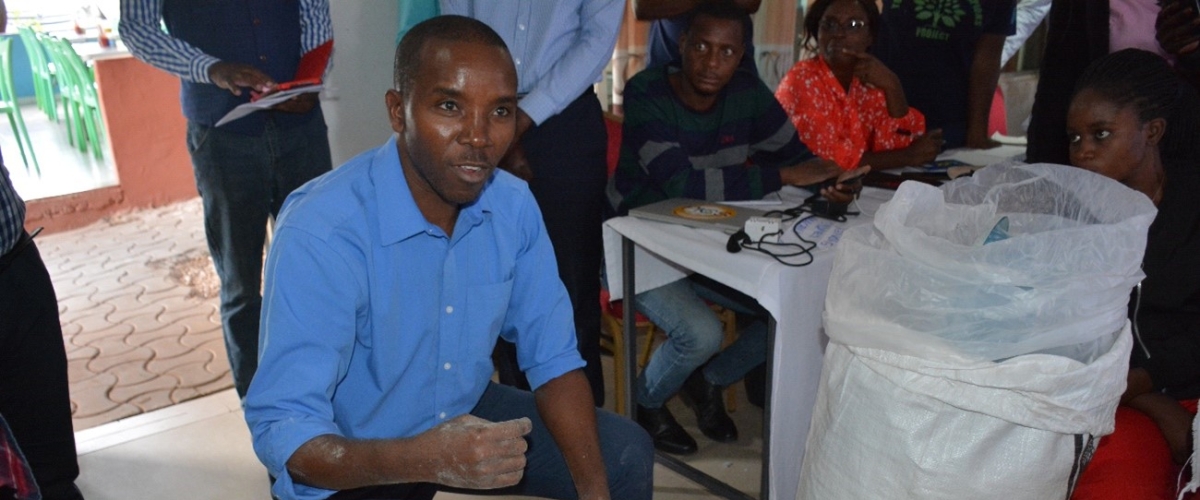
By Dorcas Kabuya
ZAMBIA is a country blessed with vast agricultural resources and is in most cases the food basket of Sub-Saharan Africa, however, there is a hidden problem that remains unnoticed. Farmers who toil relentlessly to cultivate and harvest their crops are witnessing a substantial loss as their hard-earned produce is wasted between fields and storage facilities. This disheartening situation poses a serious threat to food and nutritional security.
Grain storage is a vital aspect of agriculture, that has been overlooked by many agricultural stakeholders. It is in this vein that Catholic Relief Services (CRS) in collaboration with the Ministry of Agriculture and International Maize and Wheat Improvement Centre (CYMMIT) held a two-day capacity-building training of farmers, extension officers and agro-dealers in Chongwe on post-harvest management.
The aim of the training was to reduce post-harvest losses among smallholder farmers and strengthen the supply chain for hermetic bags commonly known as PICS bags in communities in order to accelerate the adoption of the bags. CRS Programme Director, Douglas Mwasi, noted that farmers experienced post-harvest losses due to pests which was a severe blow to their livelihoods. Mr Mwasi hinted that PICS bags were meant to reduce to use of chemicals among farmers during storage citing that the bags were able to store the grain free of pests for close to a year.
“Once farmers harvest their produce they experience a challenge of keeping their produce until the next harvest due to pests. PICS bags are able to maintain the quality of the grain enabling farmers to fetch higher prices when they take their grain to the market,” he explained.
Mr Mwasi disclosed that the project targets to reach close to five thousand farmers in Lusaka, Eastern and Southern provinces with improved grain storage technologies which were durable and reusable.
The PICS bags are designed to create a low oxygen environment thereby reducing insect infestation, mould growth and moisture-related spoilage of stored grains.
And Chongwe District Agricultural Coordinator, Robin Makayi, stated that post-harvest losses not only impact affect farmers’ livelihoods but also have significant implications on food security and the economy. Mr Makayi indicated that over the years farmers had increased the area under cultivation, diversified their crops and invested in soil conservation resulting in increased production and productivity. He, however, noted that safeguarding farm produce after harvesting still remained a challenge as farmers continued to lose their crop from within their fields to storage facilities ranging between 10 to 20 per cent. Mr Makayi further revealed that there was a need to promote the adoption of modern and sustainable agricultural technologies such as PICS bags in order to reduce the need for synthetic insecticides during grain storage. “Post-harvest loses occur due to various reasons such as improper storage facility, lack of access to appropriate technologies and limited knowledge on proper handling and processing techniques,” he added.
Meanwhile, Zambia Agricultural Research Institute (ZARI) Senior Agricultural Research Officer, Mathias Tembo, who is also Acting Head of the Food Storage and Conservation Unit hinted that proper storage of key crops especially such as maize, sorghum and groundnuts was vital in sustaining food security. Mr Tembo said that it was unfortunate that farming generally concentrated on production and achieving higher yields ignoring harvest and post-harvest. “Storage insect pests such as Weevils and Larger Grain Borers can quickly damage and destroy stored grain. As an Institute, we are committed to developing, validating and supporting any technology that extends the shelf life of farmers’ harvests without compromising the quality,” he echoed.
Speaking at the same event, Sydney Machila a male farmer from Katoba Agricultural Camp who has been using the PICS bags for three consecutive years now testified on the effectiveness of the bags in managing storage pests. “The bags have had a positive impact on my farming, I have noticed a reduction in post-harvest losses due to improved storage conditions,” he attested.
Lister Sitole a female farmer from Twikatane Agricultural Camp also from Chongwe District indicated that she was delighted to hear testimonies of other farmers concerning the bags adding that it was becoming a trend to use chemicals from land clearing to storing which was a health hazard to farmers and other consumers.
It is time to acknowledge and address the plight of farmers who bear the brunt of these losses by strengthening the infrastructure and securing the nation’s food supply.
Failure to address this crucial aspect could lead to irreparable damage to the success and livelihoods of countless farmers.
The author is an Agriculture Information Officer at the National Agricultural Information Services. She is also CCARDESA Information, Communication and Knowledge Management (ICKM) focal point person for Zambia





